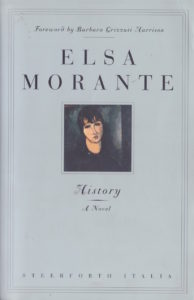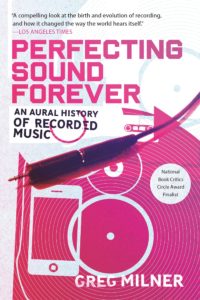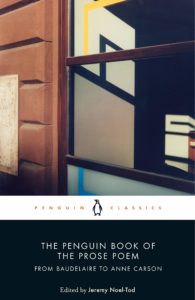Illustrator: Alex Kidd
Publishing date: Apr, 09, 2020
Mere months after dissolving his long-running indie rock project, Frog Eyes, Carey Mercer was back in the pond writing songs for his new project, Soft Plastics.
Joined by his partner, drummer Mel Campbell, and Shyla Seller on synths, this new band is equally as poignant and visceral as its predecessor. While they’ve made the difficult decision to postpone the release of their debut, 5 Dreams, to later this year, Mercer has just teased, “Rope Off The Tigers,” a moody and crawling anthem that beats, pulses and roars with a kind of tension that even Joe Exotic couldn’t cage.
Living in Vancouver, Mercer’s side gig for a couple years back in 2010 was working at one of the city’s most prominent bookstores, Pulp Fiction Books. Since we’re all stuck indoors, social isolating and counting the hours, we asked him to share some of his literary expertise with us and recommend some books worth digging into.
Mercer suggests that these books, like all books, should be ordered from your local independent book retailers. If you are in the Lower Mainland, consider Lucky’s Comics and Books, The Paper Hound, and Pulp Fiction.
History: A Novel by Elsa Morante
 Elisa Morante’s writing is a large influence on Italian novelist Elena Ferrante (Neapolitan Novels). She lived in Rome through the Mussolini and Nazi years and for a year her and her husband Alberto Moravia, both half-Jewish and prominently anti-fascist, were in hiding, hunted by fascist forces. This experience is a backdrop for History: A Novel.
Elisa Morante’s writing is a large influence on Italian novelist Elena Ferrante (Neapolitan Novels). She lived in Rome through the Mussolini and Nazi years and for a year her and her husband Alberto Moravia, both half-Jewish and prominently anti-fascist, were in hiding, hunted by fascist forces. This experience is a backdrop for History: A Novel.
I came across one of her other books in Seattle’s Elliott Bay Books a month ago, returning from going to see Destroyer play in Portland. It was a sentimental trip: I sat in the backseat with my son and his friend G, Dan and Sydney Bejar/Hermant’s daughter. They forced me to go through every embarrassing moment of my life from Grade 1 to Grade 12 to make the time pass. By the time we hit Elliott Bay I was an emotional wreck from going so deep. In other words, I was ready for the grounding influence of walking around in the stacks of a bookstore.
I found Arturo’s Island to be good-great, not great-great, but by the end of that novel I had acclimatized to her voice and wanted to be immersed in her “big book.” I took History: a Novel out of the Vancouver Public Library the day before they shut their doors, along with some Modiano and a few other choice novels.
Morante’s novel is about a Jewish woman who is assaulted by a German soldier in Rome. The woman, Ida, becomes pregnant, and the novel is about providing care to her child in a city on fire; a starving city; a city bombed and hollowed out; a city hunting its own citizens while Fascist pigs smash heads, starve kids, and wreak suffering. Ida is both a steadily unraveling human and steadfast stoic caregiver. She is both the centre of the novel as the unwavering mother, and yet she is also at the centre of this intense confluence of anti-semitism levelled in increasing waves towards her. She is also witness to, and recipient of, the general cosmic suffering all around her: starvation, poverty, ideological disillusionment.
It sounds dreadful but Morante is a killer writer and does the job of balancing the day to day mundanity and sweetness with the big scenes of war horror and partisan resistance to fascist rule. The scenes of Ida and child co-mingling with other families cast a long and acknowledged shadow over Ferrante’s Neapolitan novels.
Why this book? I guess it is helpful and oddly calming to remember we are links in a chain of suffering and release, to read about how people maintain relationships and care for each other in what feels like real adversity.
This Life: Secular Faith and Spiritual Freedom by Martin Hägglund
 This Life is a big book about Time and Love and how we might use our (all too fleeting) time together, weaving meditations and anecdotes about love, political and economic reform, freedom, death—all run through a secular filter. Hägglund bolsters me and is a persistent voice in my ear to love, as best I can, those around me.
This Life is a big book about Time and Love and how we might use our (all too fleeting) time together, weaving meditations and anecdotes about love, political and economic reform, freedom, death—all run through a secular filter. Hägglund bolsters me and is a persistent voice in my ear to love, as best I can, those around me.
Even after a few pages, I wonder about all the relationships that remain half-baked or diluted by simply not taking our time together more seriously, by squandering our together-time, by allowing our time to be stolen from us by the workweek and its isolating, exhaustive aftershock.
When I say bolster, I mean it: a few pages of the book lifts my spirit. A book that has Secular Faith and Spiritual Freedom as its secondary title sounds dusty or wince-inducing, but read this passage about time and love that starts ch. 2:
More than sixteen hundred years ago, Saint Augustine explored the experience of time through a simple exercise. You can still try it today. Choose a song that you love and learn it by heart. Keep practicing until you remember every part of the song and every shift in the melody. As you sing it, you will know how much of the song has passed since the beginning and how much of it remains until the end. Yet—in holding the song together—you will find that it is already slipping away. There is never a moment in which the song is present to you. You can sing it only by retaining the notes still to come. Even each individual tone is never present-it begins to recede as soon as it sounds and you have to hold on to it to hear anything at all.
I was typing this passage out and thinking about a songwriter’s relationship to their song, and I think there is a time, a sweet spot, where the song inhabits our flesh; a time that we are wholly present, that each turn and twist of the song is present, that the part is the whole, that the beat or bar is also the whole stretch; the coordinate is somehow the whole map, and that when we sing this song or perform it, we are actually truly present. And that is perhaps why so many of us pledge ourselves to the art of it.
I bought this book a year ago, on the recommendation of my old friend JP who works at Pulp Fiction Books in Vancouver. It has stayed around my bed for the year. I can read 20 pages and argue with it or talk to it and there are days when I have gone out in the world feeling, if not infused, then at least bolstered.
Dominic by William Steig
 My son Ivan and I have been reading this, not together, but sharing it in 50 page chunks. We got it one fine Saturday at Lucky’s Comics and Books in Vancouver, one of the city’s great places to spend a little time and spend a bit of fun money, if you are lucky enough to be smart enough to know that book buying is as entertaining as watching shite films at the multiplex or drinking an hour of “craft brew” among extroverted bohemians.
My son Ivan and I have been reading this, not together, but sharing it in 50 page chunks. We got it one fine Saturday at Lucky’s Comics and Books in Vancouver, one of the city’s great places to spend a little time and spend a bit of fun money, if you are lucky enough to be smart enough to know that book buying is as entertaining as watching shite films at the multiplex or drinking an hour of “craft brew” among extroverted bohemians.
Dominic is a journey book, and I like that fine. At university I had the gall to ask my professor why he taught The Odyssey and not The Iliad and he told me that life can be thought of as either a battle or a journey, and better to choose the journey.
Dominic is a dog, so be warned that it is an animals-acting-like-humans book, but it can be unexpectedly piercing swimming around in the reflections of Dominic, especially as he reflects on a good day of messing around, looking up at the stars and thinking about what’s what.
Perfecting Sound Forever by Gregg Milner
 A book that charts the history of recorded music (and the sound of trains) from Edison to a little bit before now (the mp3): total rip snorting pot-boiling page-turning fun, right? Totally!
A book that charts the history of recorded music (and the sound of trains) from Edison to a little bit before now (the mp3): total rip snorting pot-boiling page-turning fun, right? Totally!
Highly recommended if you are a music person or a sound person but especially if you are a sound and music person. Milner has all of these great anecdotes about nutters becoming consumed with formats and fidelity—a particularly memorable one has him visiting a proto-music therapist who believes digital music has a fluoride effect, draining us of our will to resist, question, and actively assert ourselves—in other words, my favourite term: sheeple. He proposes a simple test for Milner to prove his theory, and you should read the book to find out if we are sheeple, people, or the worst kind of brainwashed stooges: m-p-three-ple.
The book is stuffed full of anecdotes and interviews and attitudinal shifts towards recorded sound. It is escapist for me in the sense of longing for a time wherein the search for fidelity, soundstage and pinpoint imaging would keep one up at night, as opposed to everything else that keeps us up at night in 2020. Once you are done, read the Damon Krukowski book The New Analog, which functions like a postscript to Perfecting Sound Forever.
The Penguin Book of the Prose Poem: From Baudelaire to Anne Carson, edited by Jeremy Noel-Tod
 A panacea, a cleanser, a tonic for too much internet, too much news, too many developments, but primarily a collection of prose poems, starting with prose poems published in 2017 and stretching back to 1848.
A panacea, a cleanser, a tonic for too much internet, too much news, too many developments, but primarily a collection of prose poems, starting with prose poems published in 2017 and stretching back to 1848.
Some years, like 1999, have only one poem, as everyone, including the prose poets, were preoccupied with assembling their Y2K party packs, and only Barbara Guest had time to dash off (the brilliant) “The Cough.”
Some years are jam packed, like chart topping 7 poem 2014. I recognize or am familiar with about 10 percent of the poets published here. I have not read even one stinker.
I could spend the rest of seclusion with only this book, flipping it open, reading a page, turning up the Bill Fay, expunging one of those deep-life sighs of melancholy and appreciation, making a cup of tea, watching the April rain, opening up another page and reading or rereading. Things could be worse, they might get worse, but we have each other and all of these prose poems to read.

